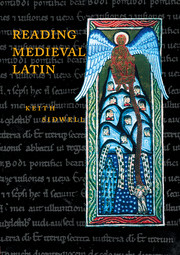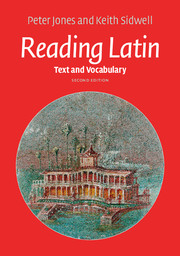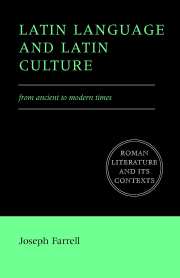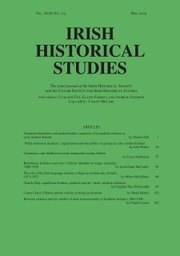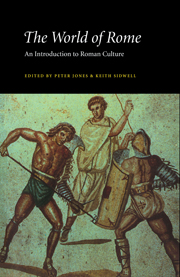Reading Medieval Latin
Reading Medieval Latin is an anthology of Medieval Latin texts, arranged chronologically and thematically with introductions, commentaries and a vocabulary of nonclassical words and meanings. It is a language textbook, designed to introduce students with one year or more of Latin to the Latin writing and culture of the period A.D. 550-1200. It is the only systematic introduction for students to all types of Medieval Latin writing.
- Written by one of the authors of Reading Latin, who understands needs of those having to learn Latin quickly
- Teachers may choose passages on themes they want from anywhere in the book since the linguistic level of the commentaries is constant
- Contains historical writing not usually excerpted for anthologies and includes material by female writers of Medieval Latin
Reviews & endorsements
"Keith Sidwell promises his readers a selection of Medieval Latin readings that will give a relatively unskilled Latinist a sound introduction to Medieval Latin from the beginnings of 'Christian Latin' to the twelfth-century Renaissance. Sidwell's book in fact offers his readers even more than he promises. His impressive knowledge of numerous aspects of medieval studies, his lively sense of human interest, and his enjoyment of the humorous make Reading Medieval Latin an illuminating and stimulating study of the Middle Ages." Bryn Mawr Classical Review
Product details
No date availableAdobe eBook Reader
9781107299146
0 pages
0kg
8 maps
This ISBN is for an eBook version which is distributed on our behalf by a third party.
Table of Contents
- Introduction
- Part I. The Foundations of Christian Latin:
- 1. Education
- 2. Liturgy and divine office
- 3. The Bible
- 4. The Church fathers
- 5. The new Christian genres
- Part II. Early Medieval Latin:
- 6. Hiberno-Latin
- 7. Anglo-Latin
- 8. Continental Latin
- 9. The Carolingian Renaissance
- 10. The Ottonian Renaissance
- Part III. From the End of the Ottonian Renaissance (1002) to the Concordat of Worms (1122):
- 11. The Norman conquests
- 12. The 'Investiture Contest'
- 13. The First Crusade
- 14. Philosophy and theology
- 15. Poetry
- Part IV. The Twelfth-Century Renaissance:
- 16. The schools and the scholastic method
- 17. The religious life
- 18. Theology and philosophy
- 19. Historical writing
- 20. Court literature
- Grammar
- Orthography
- Note on vocabulary
- Vocabulary.

